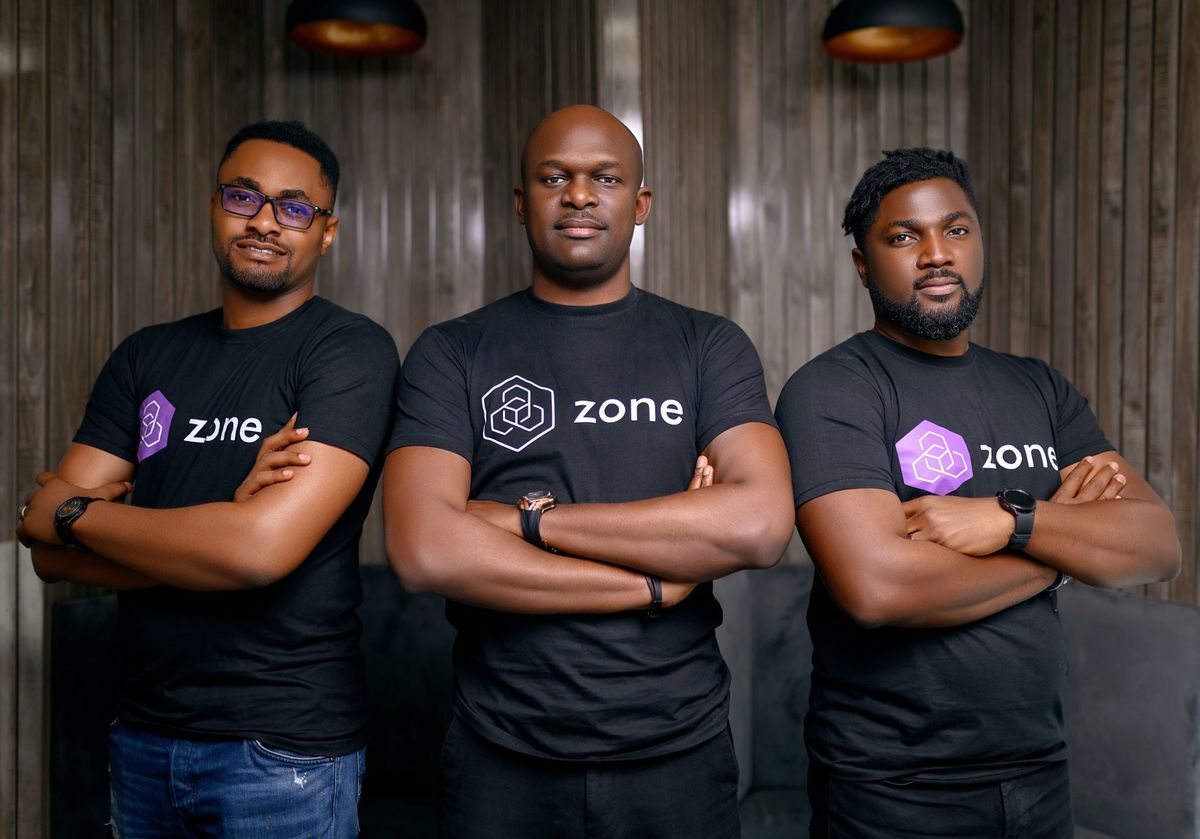How Zone's (formerly Appzone) plan to power global payments with blockchain
Appzone has rebranded Zone, to power global payments with its regulated blockchain network, its BaaS product is now known as Qore.

Over a year after raising a $10 million Series A to build products for digital banks and interbank transactions, Nigerian fintech, Appzone has rebranded to Zone with a new tag—a regulated blockchain payment infrastructure company.
With this rebrand, Appzone's (now Zone) Banking-as-a-Service business has been carved into a separate standalone company, known as Qore. This will allow the company to continue serving its existing clients and growing the reach of the product.
"With this transition to Zone, we are utilising the power of blockchain technology to connect every monetary store of value and enable reliable, frictionless and universally interoperable payments. In doing this we are building one global network to pay anyone through any means, in any currency, which will ultimately maximise financial inclusion and accelerate economic prosperity for Africa and the rest of the world," Obi Emetarom, Zone's co-founder and CEO, said.
As part of its evolution, Zone is pivoting from its cloud-based SaaS infrastructure to offer payments processing services that support both fiat money and digital currencies, with the intention to enable a hybrid interim period in finance where TradFi and DeFi will coexist seamlessly. In the case of fiat payments, Zone connects some of Africa’s most prominent Banks and Fintechs within and across countries and utilises a native stable coin to provide real-time settlement for cross-border transactions.
According to the United Nations, Africa's population will grow to approximately 1.7 billion in 2030, with a potential for $91 billion in cross-border payments and a retail value of over $1.5 trillion. But at an $8.97 fee per transaction, cross-border payment within sub-Saharan Africa still has one of the most expensive remittance structures.
In addition, beneficiaries typically cannot have value delivered instantly to their Bank accounts or mobile wallets. Zone’s Layer-1 blockchain network will allow payments initiated from one country in one currency to be received instantly in another country and currency at a fraction of prevailing costs.
Blockchain is a digital ledger of transactions that provides users with traceability and security without the need for middlemen. Using blockchain, Zone is working on completely digitising and decentralising payments, thereby paving the way for a cashless society where payments transcend borders.
With the switching licence, Zone said it will expand its transaction switching and processing services currently offered to banks and fintechs through its blockchain-based payment network, ZONE, which launched in December 2021.
Related Article: Is blockchain not cryptocurrency?
According to a statement shared with Benjamindada.com, Zone will enable payments and the acceptance of digital currencies for Financial Service Providers globally. The product-regulated blockchain network enables direct transaction flow between financial service providers without an intermediary, bringing reduced transaction costs, instant dispute resolution, and absolute reliability across Africa’s payment borders and beyond.
Inside the old identity—Appzone
Since its launch in 2008, Appzone's products have processed over $2 billion annually for 500+ banks, Fintechs and MFIs in seven countries - this includes payments processing for six of Africa’s top 25 banks.
Appzone's clients are spread across Nigeria, Ghana, Gambia, DRC (Democratic Republic of Congo), Tanzania, Senegal and Guinea and to date, the company has raised $15 million in equity funding with previous investors including Lateral Capital, GreenHouse Capital, Timon Capital and Itanna.
In 2018, the company obtained official approval from the Central Bank of Nigeria to operate as a Payment Solution Service Provider (PSSP)







Comments ()